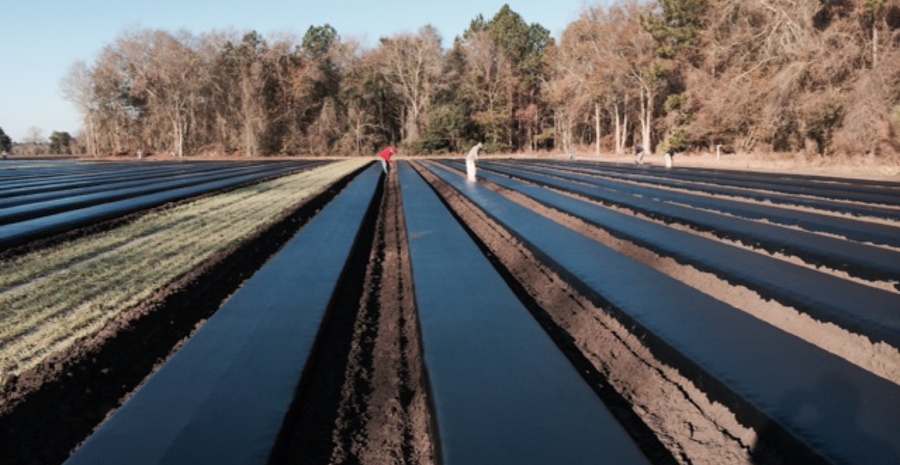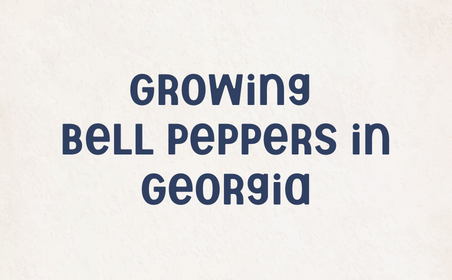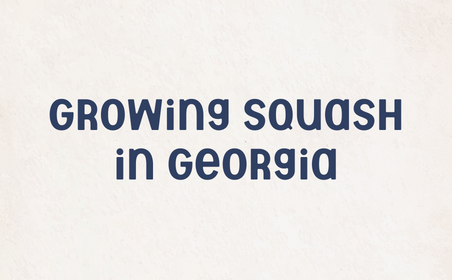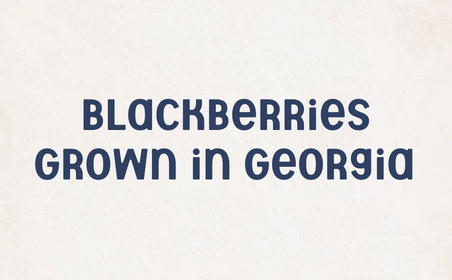Still being the newbie here, I wasn’t fully aware of the ins and outs of our production practices at the farm in Georgia. After a lengthy conversation with a few individuals in the company who are instrumental in the day to day production, food safety, and environmental stewardship of the farm, I was reassured to find things as I already suspected them to be. Here are just a few of the practices we utilize to keep this place sustainable and here for the long run.
Let’s start with drip tape irrigation and plasticulture. Those words may mean very little to some of you, so let me explain. Drip tape irrigation runs water from the well down the length of each row of plants and soaks the soil along the way through holes strategically placed in the hose. This is in contrast to overhead irrigation (think a sprinkler) and decreases our water usage by approximately 20%. We use drip tape on all of our crops and not just for irrigation purposes, but also for distribution of fertilizers and any other soil inputs. We combine this practice with growing on plastic, which also allows for a decreased use of herbicides (to control weeds) as well as keeping the produce significantly cleaner and keeping the soil warmer during growing months. The combination of plasticulture and drip irrigation keeps the soil moist and allows for direct application of inputs to the plant root base. Typical plasticulture gets two crops off of one laying of plastic, some growers manage to get 4, we work to get 6. This means we only have to fumigate the soil once every 3 years, instead of each year. This practice is not without a higher labor cost to us since weeds must then be controlled manually once the plastic has some age on it.
We combine these two practices with crop rotation – changing what crops we grow in which fields, on a seasonal basis – which is step one to breaking up insect and disease cycles that plague crops. In addition to crop rotation, we also utilize beneficial insects and natural methods to control plant pests, without the use of pesticides (for pests). This method of pest control is commonly referred to as Integrated Pest Management or IPM. We use this in conjunction with a professional who comes to scout the fields twice a week minimum alongside our own horticulturalist. Together they utilize natural insect and disease control methods. When all else fails and an herbicide or pesticide must be used, because we have our fields broken up into small plots called zones, we can treat only the zone with the issue. Thanks to drip tape irrigation, we can treat that zone by applying the herbicide or pesticide directly to the soil. We work hard to use natural methods prior to synthetic ones, soil-feeding practices before soil-destroying ones, and individualized approaches over blanket approaches.
Finally, in keeping with the theme of healthy soil, we regularly feed our soil probiotics. Similar to a probiotic you would take for the human digestive system, these probiotics are teaming with microbial life – the good kind of bacteria. We also provide digestive matter for this microbial life in order to encourage its growth. Actually, an estimated 7% minimum of our production costs goes into keeping our soil healthy through microbial life. Just like the flora in our gut, we want lots of healthy microbial life in the soil of our plants.
These are just a few of the tidbits I found out about how we grow produce here at Southern Valley. What I suspected to be the case, turned out to be true. The overall heart and intent of Southern Valley is to combine sustainability with profitability. One of these elements without the other is sure to mean the death of the farm. This has always been Southern Valley founder and owner, Kent Hamilton’s, goal and aim. From the very beginning, he has fought to ensure that the soil that grows his produce is still here, healthy, and growing produce when his children and grandchildren are running the farm. These aren’t new trendy methods for Southern Valley; this is who we have always been.



